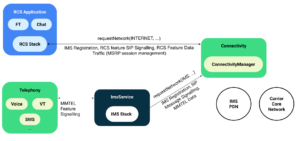The data science world is rapidly evolving, so it can be difficult to keep up with the terminology. Whether you’re interested in entering the data science field or currently in it, you may notice many teams are employing data architects. This may leave you wondering: what is a data architect? Is it just another name for a data engineer? Understanding this role may help you plan and navigate your career path in data science.
What Is a Data Architect?
A data architect is an information technology professional who specializes in the design planning, policy-setting, and management of data systems. This includes defining how data will be stored, managed, integrated, and consumed within a system. Typically, only teams with complex data requirements hire a dedicated architect. However, even the simplest data system implementation must start with planning the architecture.
The Role of a Data Architect
In a lot of ways, a data architect’s role is similar to that of a building architect, only a data architect works on data systems but not the construction of them. Their responsibility is to plan the system but not directly implement the plan. You can think of it as drawing up the “blueprints” for how the system will work.
However, the data specialist defines policies for how data will flow throughout the system, not just how it will be pieced together. Furthermore, data architecture may continue beyond the initial provisioning of the system, especially for complex systems.
Within the data team, the architect establishes the data vocabulary, converts business goals into strategic requirements, outlines the design to meet those requirements, and ensures alignment with the business’s strategy. Architecting a data system involves addressing both the needs of today and the potential needs of tomorrow.
Data Architect versus Data Engineer
Data engineers and architects work in tandem to help create excellent data systems, and this can sometimes cause confusion about what each profession does.
A data engineer is a specialized role that has evolved from software engineering. These engineers are charged with helping the architect build a working framework for the data system. The engineer is more focused on the implementation of the system than the architect. However, in most cases, both roles will work together to help plan an efficient and effective data solution.
Becoming a Data Architect
The entire field of data science is rapidly evolving, and the growing popularity of the architect is a testament to that. There are not yet well-established requirements for becoming a data architect. However, you can expect to need several years of experience working as a data engineer, data scientist, or solutions architect before ending up in one of these roles.
Ideally, you should have a strong understanding of data systems as well as the policies that govern and control them. Additionally, you’ll need to understand the business considerations that guide decision-making in data science. Many architects have master’s degrees or advanced certifications in computer engineering, data science, or similar fields.
Key Skills Needed for Data Architecture
This role requires a strong understanding of math, computer science, and data. Additionally, it requires strong analytical and problem-solving skills. Some of the main data architect skill requirements include:
- Data Modeling: You should be able to model data and plan data structures. This helps you plan out the data system and communicate it to others. Thus, you should expect to master data modeling standards.
- Software Development: Although architects are not often charged with the implementation of their plans, they should understand what the process will be like. Often, architects are former data engineers who have hands-on experience with data systems.
- Data Technologies: The world of data science is constantly evolving. You need to be able to stay current with the latest and greatest technologies. Furthermore, it’s important to have a broad understanding of different structures and their advantages.
- Communication: Finally, data architects play a central role in the planning of data systems. They must be able to communicate plans to others and understand the needs of various stakeholders. Communication skills are a must.
Learn More About Data Science and Architecture
Discover more about data science and the role data architects play. INE offers a variety of data science courses and training to help you master the skills you need for this role.






More Stories
SCPM Client vs. Traditional Methods: Revolutionizing Supply Chain Performance
Is Companion Device Manager Spyware? 10 Shocking Truths Revealed
SASE – The Key to Secure Digital Transformation